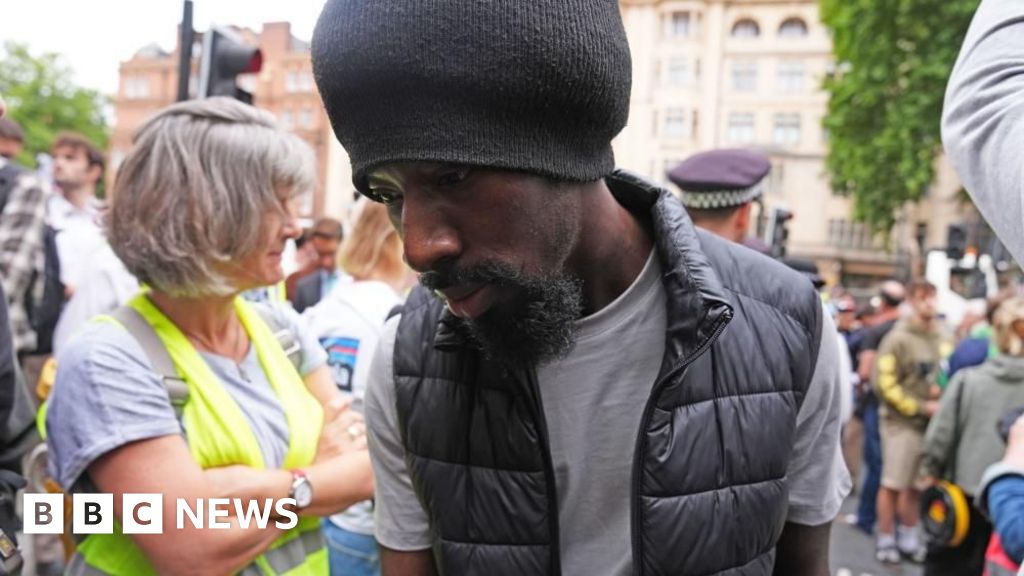Business
Pakistan’s Trump outreach sparks India ire as US ties take unexpected turn: Financial Times


Pakistan’s recent charm offensive towards United States President Donald Trump has unsettled New Delhi, the Financial Times (FT) reported, detailing how Islamabad’s army chief, Field Marshal Asim Munir’s warm reception in Washington contrasts sharply with India’s cooling ties with the White House.
According to the report, Munir travelled to Florida last weekend for the retirement ceremony of US Central Command chief General Michael Kurilla, marking his second cordial encounter with top American military officials this summer.
In June, Munir held a two-hour private lunch with Trump in Washington, just weeks after Pakistan and India engaged in their deadliest military confrontation in decades.
Such treatment is unusual for a foreign military leader, the newspaper noted, especially given Trump’s earlier criticism of Pakistan as offering “nothing but lies and deceit” to Washington. Yet the relationship appears to be enjoying what analysts described as an “unexpected resurgence” under the Republican president.
The FT said India was left “seething” by Munir’s White House welcome, as Trump’s administration offered Islamabad comparatively lighter trade tariffs — 19% compared to a punitive 50% on New Delhi — and promised a deal to develop Pakistan’s “massive oil reserves”.
The shift in tone is credited to a targeted Pakistani strategy involving counterterrorism cooperation, business outreach to Trump associates, and deals in energy, critical minerals and cryptocurrency.
Pakistani officials believe urgency was required to repair ties with the US president and his allies, some of whom had previously backed sanctions against Munir over the jailing of former prime minister Imran Khan.
An early breakthrough came in March when Pakistan’s intelligence services handed over an Islamic State Khorasan operative accused of orchestrating a 2021 Kabul bombing that killed 180 people, including 13 US soldiers.
Trump publicly praised the move in his State of the Union address, using the occasion to also criticise India over tariffs.
The report also highlighted Pakistan’s embrace of “crypto diplomacy”, including an agreement between a Trump-backed cryptocurrency venture and Pakistan’s crypto council in April. Since then, Minister for Crypto and Blockchain Bilal bin Saqib has engaged in trade talks with Washington while promoting Pakistan’s digital asset potential to figures close to the US president.
Munir’s conduct during the May conflict with India also bolstered Islamabad’s credibility with Trump, according to Pakistani officials. They said the army chief balanced “strength and restraint” by downing several Indian jets without escalating further, with the US and Gulf states mediating a ceasefire.
“Trump needs success stories to proclaim and Pakistan is happy to give them to him,” said Husain Haqqani, a former Pakistan ambassador to the US now at the Hudson Institute, a think-tank in Washington.
By contrast, Indian Prime Minister Narendra Modi publicly rejected any suggestion of US mediation, asserting that the agreement with Pakistan came through existing bilateral military channels.
The FT noted that Pakistan is presenting itself to Washington as a back channel to rivals Iran and China, reminiscent of its role in US diplomacy in the 1970s that facilitated Richard Nixon’s opening of US relations with China.
While Islamabad has criticised some American military actions, like strikes against Iran, it has also cast itself as a mediator between the US and its foes.
In late July, Munir flew to Beijing, where he toured the headquarters of the People’s Liberation Army and reassured China’s foreign minister Wang Yi over the safety of Chinese nationals in Pakistan.
“Pakistan is a rare country that is friends with China, Iran, the Gulf states, to a lesser extent, Russia, and now, again, the US,” said Marvin Weinbaum, a senior fellow at the Middle East Institute in Washington. “The US sees Munir as someone who can play a useful strategic role, and the Pakistanis keep their lines open to everyone but know to pull back when one relationship is clashing with another.”
For India, the burgeoning Trump–Pakistan relationship has proved an irritant, particularly given its failure to avert steep tariffs despite its larger economy. Indian officials expressed frustration at what they see as Washington rewarding a military-ruled neighbour for striking quick business deals.
Analysts cautioned, however, that Trump’s goodwill could prove volatile. According to the FT, Pakistan’s natural resource wealth remains largely unproven, its economy depends on a $7 billion IMF bailout, and recognition of Israel — a possible US expectation — would be politically difficult in Islamabad.
Haqqani told the newspaper that Trump is “playing the Pakistan card” to gain leverage over India. Former prime minister Shahid Khaqan Abbasi warned that while the outreach has yielded short-term gains, Islamabad must protect “both its interests and its dignity” in the unpredictable relationship.
Business
Govt keeps petrol, diesel prices unchanged for coming fortnight – SUCH TV

The government on Thursday kept petrol and high-speed diesel (HSD) prices unchanged at Rs253.17 per litre and Rs257.08 per litre respectively, for the coming fortnight, starting from January 16.
This decision was notified in a press release issued by the Petroleum Division.
Earlier, it was expected that the prices of all petroleum products would go down by up to Rs4.50 per litre (over 1pc each) today in view of variation in the international market.
Petrol is primarily used in private transport, small vehicles, rickshaws, and two-wheelers, and directly impacts the budgets of the middle and lower-middle classes.
Meanwhile, most of the transport sector runs on HSD. Its price is considered inflationary, as it is mostly used in heavy transport vehicles, trains, and agricultural engines such as trucks, buses, tractors, tube wells, and threshers, and particularly adds to the prices of vegetables and other eatables.
The government is currently charging about Rs100 per litre on petrol and about Rs97 per litre on diesel.
Business
Serial rail fare evader faces jail over 112 unpaid tickets

One of Britain’s most prolific rail fare dodgers could face jail after admitting dozens of travel offences.
Charles Brohiri, 29, pleaded guilty to travelling without buying a ticket a total of 112 times over a two-year period, Westminster Magistrates’ Court heard.
He could be ordered to pay more than £18,000 in unpaid fares and legal costs, the court was told.
He will be sentenced next month.
District Judge Nina Tempia warned Brohiri “could face a custodial sentence because of the number of offences he has committed”.
He pleaded guilty to 76 offences on Thursday.
It came after he was convicted in his absence of 36 charges at a previous hearing.
During Thursday’s hearing, Judge Tempia dismissed a bid by Brohiri’s lawyers to have the 36 convictions overturned.
They had argued the prosecutions were unlawful because they had not been brought by a qualified legal professional.
But Judge Tempia rejected the argument, saying there had been “no abuse of this court’s process”.
Business
JSW Likely To Launch Jetour T2 SUV In India This Year: Reports

JSW Jetour T2 Launch: JSW Motors Limited, the passenger vehicle arm of the JSW Group, is reportedly preparing to enter the Indian car market this year. It has partnered with Jetour, a China-based automotive brand owned by Chery Automobile, and the Jetour T2 SUV could be the company’s first product, according to the reports.
Media reports suggest that the launch will happen independently and not under the JSW MG Motor India joint venture. The SUV will wear a JSW badge and name, instead of the Jetour branding. The upcoming SUV will be assembled at JSW’s upcoming greenfield manufacturing facility in Chhatrapati Sambhaji Nagar, Maharashtra.
According to the reports, the company plans to have the vehicle on sale by the third quarter of this year. With this move, JSW aims to establish itself as a standalone carmaker in India.
Expected Powertrain
The SUV is likely to arrive with a 1.5-litre plug-in hybrid setup. Internationally, this hybrid powertrain is offered with both front-wheel drive and all-wheel drive options. It is still unclear which version will be introduced in India.
Design
In terms of design, the T2 is a large and rugged-looking SUV. It has a boxy and upright stance, similar to vehicles like the Land Rover Defender. Despite its tough appearance, it uses a monocoque chassis instead of a ladder-frame construction.
Size
The SUV measures around 4.7 metres in length and nearly 2 metres in width. This makes it larger than the Tata Safari, even though it is a five-seater. A longer 7-seat version is also sold in some markets.
Price
Pricing details for India are yet to be announced. For reference, the front-wheel-drive five-seat T2 i-DM is priced at AED 1,44,000 (around Rs 35 lakh) in the UAE.
Jetour
Jetour is a brand owned by Chinese automaker Chery. Launched in 2018, it focuses mainly on SUVs and is present in markets across China, the Middle East, Africa, Southeast Asia and Latin America.
-

 Politics1 week ago
Politics1 week agoUK says provided assistance in US-led tanker seizure
-

 Entertainment1 week ago
Entertainment1 week agoDoes new US food pyramid put too much steak on your plate?
-

 Entertainment1 week ago
Entertainment1 week agoWhy did Nick Reiner’s lawyer Alan Jackson withdraw from case?
-

 Business1 week ago
Business1 week agoTrump moves to ban home purchases by institutional investors
-

 Sports5 days ago
Sports5 days agoClock is ticking for Frank at Spurs, with dwindling evidence he deserves extra time
-

 Sports1 week ago
Sports1 week agoPGA of America CEO steps down after one year to take care of mother and mother-in-law
-

 Business1 week ago
Business1 week agoBulls dominate as KSE-100 breaks past 186,000 mark – SUCH TV
-
Sports6 days ago
Commanders go young, promote David Blough to be offensive coordinator





